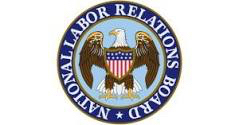By Howard B. Jackson
Under Section 10 (j) of the National Labor Relations Act (“Act”), the National Labor Relations Board (“Board”) has the authority to seek injunctive relief in U.S. District Court in situations where based on the passage of time the normal processes of the Board will be unlikely to effectively remedy the alleged violations. The basic idea is that an employer or union should not be allowed to frustrate the purposes of the Act by committing unfair labor practices that severely alter the circumstances, and then litigating the matter through the Board’s usual processes to a point such that by the time a final decision is made the unfair labor practice has had a permanent impact, rendering the Board’s remedy ineffective. To prevent that set of circumstances, the Board can seek an injunction which, in most cases, seeks to preserve or restore the status quo before the unfair labor practice charge was filed.
As in any situation, the grant of an injunction during the pendency of an underlying action is an unusual form of relief. To justify obtaining a Section 10 (j) injunction the Board must show how the alleged violations threaten statutory rights and the public interest while the proceedings are ongoing and before a Board order will issue. This typically involves two elements of proof: (1) a sufficient showing that an unfair labor practice has occurred; and (2) showing that there is a threat that the Board’s remedial order issued in due course would be ineffective, in practical terms a nullity.
An aspect of this procedure which is unusual is that it is carried out in U.S. District Court, and it takes place early in the process. Labor practitioners and human resources professionals who have worked in organized settings know that in the usual course of things an unfair labor practice is filed with the Board. The Regional Director then decides whether there is merit to the charge such that it should be prosecuted. If so, there is a hearing before an administrative law judge (“ALJ”). ALJ’s are hired via the Board’s Division of Judges to hear cases under the Act. A party who is not satisfied with the ALJ decision can appeal to the five-member Board in Washington, D.C. All of this takes place within the NLRB itself, and not in court.
In contrast, where the Regional Director determines that the alleged unfair labor practices warrant Section 10(j) relief, the Board proceeds directly into U.S. District Court and seeks issuance of the injunction. If issued, the injunction typically remains in place until the unfair labor practice is finally resolved.
In August of 2021, the Board’s General Counsel, Jennifer Abruzzo, issued a Memorandum indicating her belief “that Section 10 (j) injunctions are one of the most important tools available to effectively enforce the Act.” Ms. Abruzzo stated that she intends to “aggressively seek Section 10 (j) relief where necessary to preserve the status quo and the efficacy of Board orders.”
The Memorandum noted several situations where pursuit of such an injunction may be in order because they have a greater likelihood of remedial failure. The Memorandum listed each of the following: (1) discharges that occur during an organizing campaign; (2) violations during an organizing campaign that suggest the need for a Gissel bargaining order (discussed further below); (3) violations that occur during the period following a union’s certification as representative when the parties are charged with negotiating a first collective bargaining agreement; (4) charges that involve withdrawal of recognition from an incumbent union; and (5) circumstances where a successor employer refuses to bargain with an incumbent union or refuses to hire the predecessor’s employees. Each of these categories has its own complexities and interesting factors. The remainder of this article focuses, however, on discharges during an organizing campaign, and the scary possibility of being subjected to an interim Gissel bargaining order.
During an organizing campaign where a union is attempting to organize a unit of employees, it is well known that management may not interrogate employees about their union sympathies. As a practical matter it frequently becomes evident that certain employees are leading the charge to organize.
It may be tempting for an employer to find reasons to rid itself of those employees. If they are gone, then there will be a void in leadership of the organizing effort. Others who may have been considering joining the organizing effort will be discouraged by seeing what has happened to those who made their views known. And litigating whether or not the discharge was really because of their attendance, or misconduct, as opposed to their union activities, can go on for years. Of course, these factors are the exact rationale the Board uses for seeking injunctive relief. If the violation is not addressed quickly, it may well achieve the objective of killing off the organizing effort.
In three recent situations the Board has made good on its promise to seek a Section 10 (j) injunction in such alleged situations. One case is against Starbucks in Memphis, Tennessee, filed in May of this year. The Board alleged that the company discharged seven employees regarded as union supporters in order to frustrate the organizing effort. The employees were all discharged on the same day and included five of the six members of the organizing committee. Starbucks has responded that it had various legitimate reasons for discharge each of those employees. The case remains pending in the U.S. District Court for the Western District of Tennessee. As of this writing the Court has held proceedings relative to the request for injunction but has not issued a decision.
Another recent case also involves Starbucks. In June of this year the Board’s Regional Director in Buffalo, New York petitioned the U.S. District Court in New York for a Section 10 (j) injunction. In that case the Board alleged that Starbucks engaged in a variety of unlawful conduct, including raising wages, promising benefits, closing stores with active organizing drives and threatening employees. Eventually, the Board alleges, Starbucks discharged seven union activist employees at five stores over the course of six weeks. In this case the Regional Director is seeking a nationwide cease and desist order that would apply to Starbucks facilities nationwide, which would be an extraordinary remedy if granted. This request also remains pending.
Lastly on this category, in March of this year the Board filed for a Section 10 (j) injunction against Amazon in Staten Island. Interestingly, the petition was not filed for more than a year after the discharge and was filed a month or so before a scheduled election. The Board sought reinstatement of an employee, alleging he was let go because he engaged in organizing activity. Amazon responded that it discharged the employee because he engaged in a public, vile and profane tirade against a female coworker, both over a bullhorn and over social media. Amazon takes the position that no employer could or would tolerate such conduct in a civilized workplace. The court has not ruled on this petition as of this writing.
In short, the Board is making good on its promise to seek Section 10(j) relief in the organizing context. It remains to be seen how receptive the federal courts will be to such requests.
As noted above, the Board has listed circumstances warranting a Gissel bargaining order as appropriate for Section 10 (j) relief. While used less often, the potential consequences are frankly scary.
Your first question may be: what in the word is a Gissel bargaining order? In 1969 the U.S. Supreme Court confirmed the Board’s ability to order an employer to recognize and bargain with a union where, although an employer may have prevailed in an election, there is evidence that the union had previously obtained union authorization cards from a majority of the employees. The name of the case was NLRB v . Gissel Packing Company. Thus the name, Gissel bargaining order.
Of course, a court cannot order an employer to bargain simply because a union lost an election and once had a card majority. The evidence must show that the employer committed serious unfair labor practices that would effectively prevent a fair election or even a fair rerun election. This is a high bar to get over, and Gissel bargaining orders do not issue often.
The scary part is that the current General Counsel, Ms. Abruzzo, believes in pursuing Section 10 (j) injunctions aggressively, and that the Board can seek an interim Gissel bargaining order via a petition for Section 10 (j) relief. In other words, an employer who has not lost an election, or who recently prevailed in one, could be ordered to bargain with the union during the pendency of litigation related to whether or not alleged unfair labor practices impacted the ability to conduct a fair election to the point that a permanent bargaining order should be implemented. To put it mildly, that would be an awkward position for the employer!

Wimberly Lawson Wright Daves & Jones PLLC
Knoxville, Tennessee office
hjackson@wimberlylawson.com
